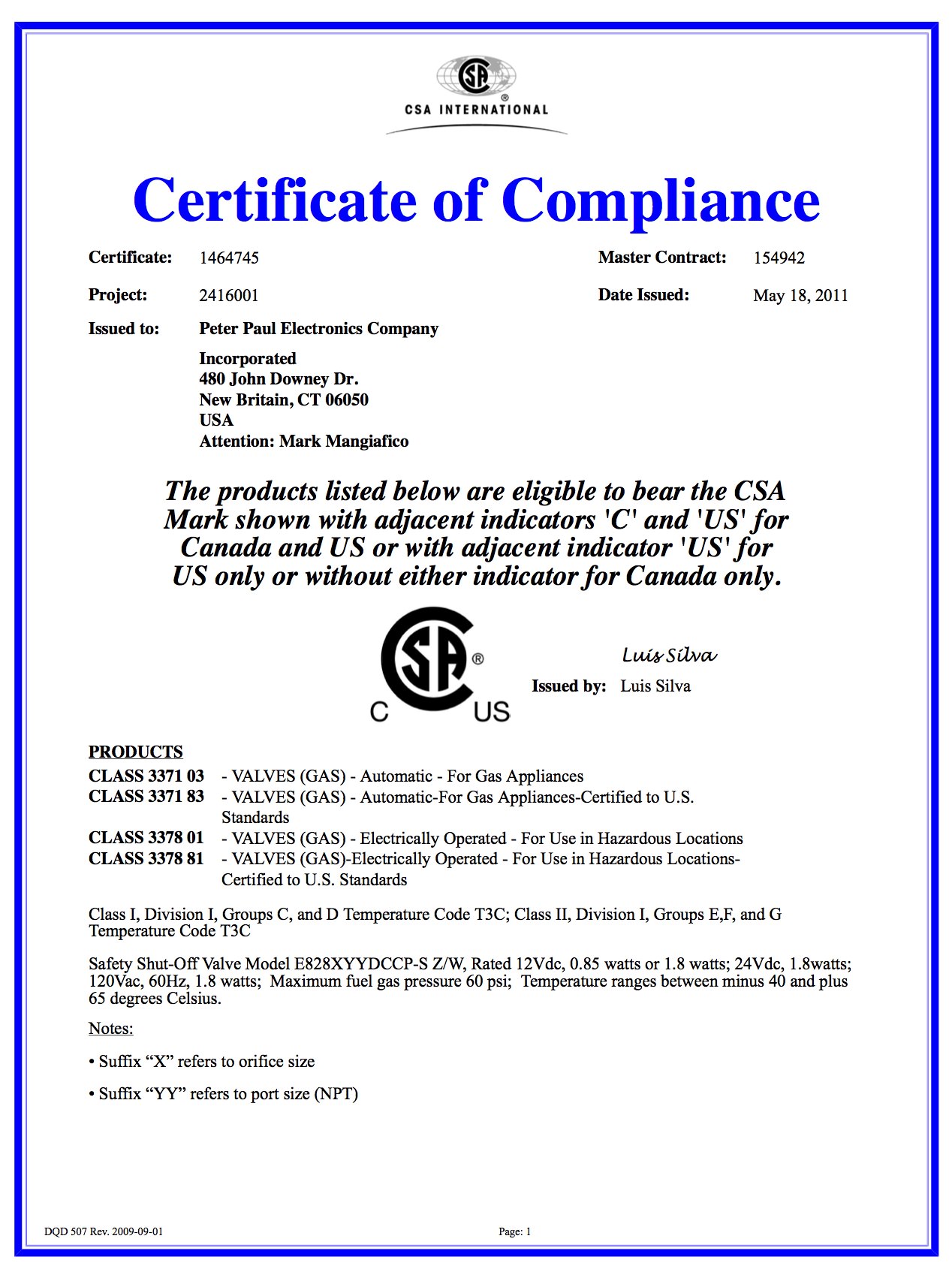Csa Vs. Asa: Understanding The Differences In CSA And ASA Certifications
Source: predictabledesigns.com
CSA vs. ASA: Understanding the Differences in CSA and ASA Certifications
If you're considering a career in auditing, you may have come across the terms "CSA" and "ASA." Both of these certifications are offered by the American Institute of Certified Public Accountants (AICPA), but they have different requirements and focuses.
Editor's Note: This guide on "CSA vs. ASA: Understanding the Differences in CSA and ASA Certifications" has been published today, March 8, 2023. It's an important topic for anyone considering a career in auditing, as these certifications can open up new opportunities and increase your earning potential.
To help you make the right decision for your career, we've put together this guide to the CSA and ASA certifications. We'll cover the key differences between the two, as well as the requirements, benefits, and career paths for each.
Key Differences Between CSA and ASA Certifications
| Characteristic | CSA | ASA |
|---|---|---|
| Focus | Auditing | Attestation |
| Requirements | Bachelor's degree in accounting or related field | Master's degree in accounting or related field |
| Experience | Three years of relevant experience | Five years of relevant experience |
| Exam | Four-part exam | Three-part exam |
| Continuing education | 40 hours every three years | 20 hours every three years |
Transition to Main Article Topics
Now that you understand the key differences between the CSA and ASA certifications, you can start to think about which one is right for you. If you're interested in a career in auditing, the CSA is a great option. If you're interested in a career in attestation, the ASA is a better choice.
No matter which certification you choose, you'll be well-prepared for a successful career in accounting.
FAQ
This FAQ section offers comprehensive answers to common questions regarding the distinctions between CSA and ASA certifications. By understanding these differences, individuals can make an informed decision about the certification that best aligns with their career goals and aspirations.
Question 1: What are the key differences between CSA and ASA certifications?
CSA (Certified Security Analyst) certification focuses primarily on the technical aspects of information security, including risk management, intrusion detection, and security controls. ASA (Associate of the Society of Actuaries) certification, on the other hand, emphasizes the application of mathematical and statistical principles to assess and manage financial risk.
Question 2: Which certification is more suitable for IT professionals?
CSA certification is highly recommended for IT professionals seeking to advance their careers in information security. It provides a solid foundation in the technical skills and knowledge required to protect organizations from cybersecurity threats.
Question 3: What are the benefits of obtaining a CSA certification?
CSA certification demonstrates an individual's expertise in information security and enhances their credibility within the industry. It also opens doors to career opportunities in security risk management, cybersecurity consulting, and security architecture.
Question 4: What is the career outlook for ASA professionals?
ASA professionals are in high demand due to the increasing need for actuarial services in various industries, including insurance, healthcare, and banking. They play a crucial role in assessing and managing financial risks, ensuring the stability and profitability of organizations.
Question 5: How can I prepare for the CSA exam?
Preparation for the CSA exam requires a comprehensive understanding of information security concepts and best practices. Candidates are advised to enroll in certification training programs, utilize online study resources, and practice with sample questions.
Question 6: What is the difference between the ASA and SOA exams?
ASA exams are administered by the American Society of Actuaries (ASA), while SOA exams are offered by the Society of Actuaries (SOA). Both organizations provide actuarial certifications, but the focus and content of their exams differ slightly.
In summary, CSA and ASA certifications offer distinct career paths and require specialized knowledge and skills. By carefully considering the differences between these certifications, individuals can choose the one that best aligns with their professional aspirations and areas of interest.
Tips
To differentiate between CSA and ASA certifications, consider the following tips:
Csa Vs. Asa: Understanding The Differences In CSA And ASA Certifications covers the comprehensive knowledge needed for security professionals. Meanwhile, the ASA certification generally focuses on a more specialized area, providing in-depth expertise.

Side by side comparison of ASA and SA profile. ASA is a bit taller and - Source www.reddit.com
Tip 2: Determine the scope of your job responsibilities. CSA certification is appropriate for individuals seeking a broad understanding of security principles, while ASA certification is ideal for those specializing in a specific domain.
Tip 3: Evaluate the level of experience and expertise required. The CSA certification is designed for professionals with varying experience levels, whereas the ASA certification typically requires a higher level of expertise and specialization.
Tip 4: Research the reputation and credibility of the certifying body. CSA certification is offered by the CSA (Cloud Security Alliance), while ASA certification is granted by the ANSI (American National Standards Institute).
Tip 5: Consider the cost and time commitment involved. CSA certification is generally less expensive and time-consuming to obtain than ASA certification. However, the investment in either certification can enhance career prospects and credibility.
Summary: Understanding the differences between CSA and ASA certifications enables you to make an informed decision based on your career goals, experience, and responsibilities.
By considering these factors, you can determine the most suitable certification for your professional development and career aspirations.
Csa Vs. Asa: Understanding The Differences In CSA And ASA Certifications
Certifications like CSA and ASA hold significant value in the world of information security, and understanding their distinctions is crucial for professionals seeking to advance their careers.
- Certification Type: Certified Secure Auditor (CSA) vs. Associate Security Analyst (ASA)
- Skill Focus: Auditing vs. Risk Management
- Exam Duration: 4 hours vs. 2 hours
- Passing Score: 700/1000 vs. 650/1000
- Prerequisites: None vs. Security+ or equivalent
- Recertification: Every 3 years vs. Every 2 years

CSA Certification for CI Solenoid Valves used in Hazardous Locations - Source peterpaul.com
These key aspects highlight the distinct roles of CSA and ASA certifications, with CSA focusing on comprehensive auditing skills and ASA specializing in risk assessment and mitigation. The differences in exam duration, passing scores, and recertification requirements further emphasize the varying levels of expertise and knowledge required for each certification.
Csa Vs. Asa: Understanding The Differences In CSA And ASA Certifications
The Certified Security Analyst (CSA) and Associate Security Analyst (ASA) credentials are both offered by the Information Systems Security Association (ISSA). While the CSA is a higher-level certification, both the CSA and ASA are valuable certifications for security professionals. The CSA is designed for security professionals with at least five years of experience, while the ASA is designed for security professionals with less than five years of experience. Both the CSA and ASA cover a wide range of security topics, including security assessment, risk management, and incident response.

Așa meciuri să tot vezi! Academia Rapid-CSA Steaua – Andrei Otineanu - Source andreiotineanu.com
The CSA is a more comprehensive certification than the ASA, and it covers a wider range of security topics. The CSA also requires more experience than the ASA. As a result, the CSA is a more difficult certification to obtain than the ASA. However, the CSA is also a more prestigious certification, and it is highly valued by employers in the security field.
The following table summarizes the key differences between the CSA and ASA certifications:
| Certification | Experience Requirement | Topics Covered | Difficulty | Prestige |
|---|---|---|---|---|
| CSA | 5+ years | Wide range of security topics | Difficult | High |
| ASA | Less than 5 years | Subset of CSA topics | Easier | Lower |
Conclusion
The CSA and ASA are both valuable certifications for security professionals. The CSA is a more comprehensive and prestigious certification than the ASA, but it also requires more experience. The ASA is a good option for security professionals with less than five years of experience who want to demonstrate their commitment to the security field. Both the CSA and ASA can help security professionals advance in their careers and achieve their security goals.
For security professionals who are serious about their careers, obtaining the CSA or ASA is a must. These certifications will demonstrate your knowledge and skills in the security field and help you to stand out from the competition.
Maple Leafs And Kraken Clash In NHL Battle For Standings Supremacy, Carles Puyol: The Heartbeat Of Barcelona And Spain's Golden Generation, IPTU Porto Alegre 2025: Guia Completo Para Economizar No Imposto Predial, Discover The Latest Entertainment News And Exclusive Interviews With Brazilian Artists On TV Record Ao Vivo, Cadastro Único: The Brazilian Registry For Government Social Programs, Cariri X Iguatu: The Northeast Football Rivalry That Electrifies Brazil, Peixe Do Fim Do Mundo: Um Guia Definitivo Do Tesouro Marinho Do Brasil, Benfica Aims For Top Spot In Showdown With Estrela Amadora, Sampaio Corrêa Vs. Bangu: Clash Of The Week In Brazilian Soccer League, Newcastle's Comeback Stuns Arsenal In Epic Premier League Clash,